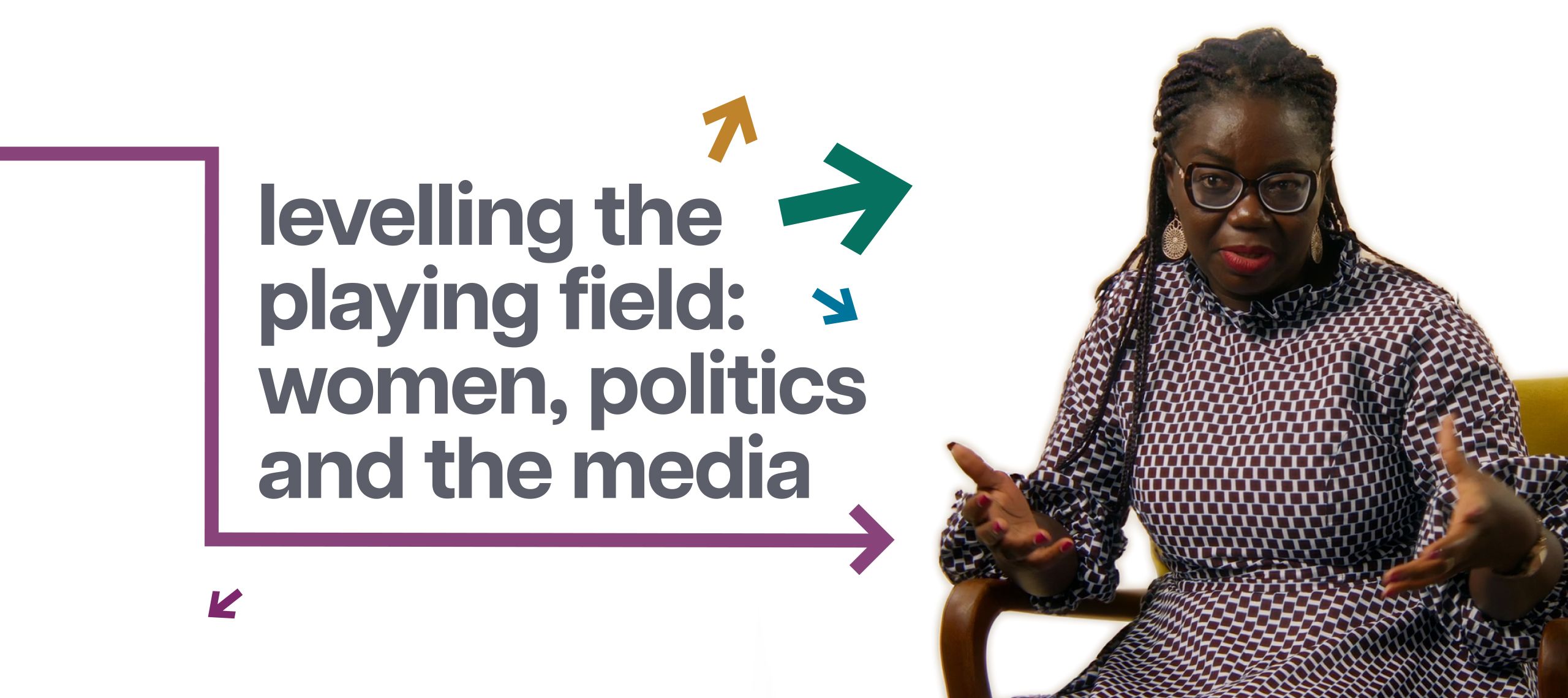
Research Journeys: Levelling the playing field: Women, politics and the media
Because the culture in these two countries is patriarchal, you find that the media facilitates and perpetuates the marginalisation of women politicians.
A single lecture on the unjust portrayal of female politicians shaped the course of Sally’s academic journey. She went on to research the treatment of female politicians in the media in Ghana and Nigeria. Her findings reflected the outdated norms that persist across the world.
Driven by a commitment to positive change, Sally uses her knowledge to help others fulfil their potential. She now actively works to amplify the visibility of women in academia and empowering them to strive for a more equitable future.
This Research Journey is part of a collection made with members of the 100 Black Women Professors NOW network.
Browse stories from the collection.
Transcript
[Sally is sitting in front of a white background speaking directly to camera.]
Sally: So I've always wanted to do a PhD because I knew I could, but I wasn't sure in which area I wanted to do it.
And then one day when I was doing my Masters, I attended a presentation by an Italian scholar who talked about the different ways in which women politicians are portrayed in the national media as opposed to the male politicians. So for instance, she showed how the journalists focus always on the sex appeal of the women, talking about whether they were beautiful or not, what their dress choices were, or what shoes they were wearing, or what accessories they were wearing. As if any of these had anything to do with their political competence. And I remember at the time I was so incensed because I thought this was so unfair, because when it came to male politicians, they always focused on their policies and their political competence. And if you focused on these gendered sort of frames for women politicians, it suggested to voters that they were not politically competent.
So after the shock of that, I became curious because I wanted to find out if this was a widespread situation that happened in other contexts. So for my PhD, I started looking at women politicians and how they are portrayed in the national media in two African countries, Ghana and Nigeria. And while I didn't find anything particularly different from what I had experienced during that presentation, I did find that because the culture in these two countries is very patriarchal, you find that the media sort of facilitates and perpetuates the marginalisation of women politicians. And I'll give you an example. So there was a time I was interviewing this female presidential candidate. She had gone on a talk show and a man had called in and has said, tell the woman to go back to the kitchen where she belongs. And the host did nothing about that. And I was utterly shocked by the fact that in this 21st century, you have such sentiment being expressed about the role of women in society.
So this led me to look at the role that social institutions like political parties and media institutions play in keeping women marginalised, particularly when it comes to leadership. And then last year, I started a new role that entailed me leading a number of projects aimed at supporting black and ethnically minoritised PhD students in UK higher education. And so I got the chance to talk to the students and to learn about the experiences, many of which I could identify with myself because I had done my PhD here in the UK. And so when they talked about the incessant feelings of isolation, for instance, and of the micro-aggressions of being overlooked, of never feeling that they are enough just because of the colour of their skin because they were in a white majority environment, I understood and I empathised.
And I remember there was a on one occasion, I had done a programme and this PhD student came over to me and she was crying. And she said that I had no idea what it meant for her to see me stand in front of them and to tell them that their experiences were valid and to empathise and understand what they were going through. And it meant so much to her to see me stand in front of them and do that. And she was crying and then I started crying as well and we sort of hugged and it was such a very intense emotional moment for me.
But then it drew my attention to the fact that what I was doing was really important, was making a difference in the lives of these PhD students. And so that led to my second love of advocacy, of using research to advocate and influence policy to make a difference in the lives of the people that I was researching.
And so my greatest desire is that my research will inform and illuminate and educate and be used to advocate and influence policy. And I know that I can't solve all the world's problems. But if my research in some small way can go towards making a difference in the lives of the people that I research, I know that I'll die happy.